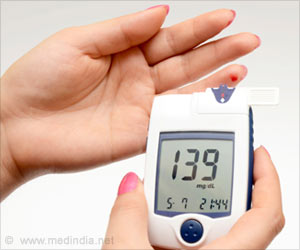
Diabetes is a chronic metabolic disease that if detected late can lead to serious and life-threatening damage to the heart, blood vessels, eyes, kidneys and nerves. The risk of type 2 diabetes can be reduced through regular and adequate physical activity, healthy eating, and by avoiding tobacco and harmful use of alcohol.
Prevalence of Diabetes Across South-East Asia
WHO Regional Director for South-East Asia, said that the region is currently on track to achieve a 30 percent relative reduction in tobacco use prevalence between 2010 and 2025, and last year launched a Regional Roadmap on implementing the Global Action Plan on Physical Activity 2018-2030.
Advertisement
“The roadmap will help Member States achieve a 15 percent relative reduction in the prevalence of insufficient physical activity by 2030, which will in turn help them to reduce expected increases in new diabetes cases”, said Dr. Singh.
While talking about the preventive measures, Dr. Singh said that WHO is calling for action in several key areas. Firstly, policy makers should set time-bound targets to address gaps in service coverage, with a focus on equity and leaving no one behind.
READ RELATED: New Drug may Help Prevent Type 1 Diabetes
Secondly, high-impact, cost-effective and context-appropriate interventions must continue to be identified and implemented. Thirdly, policy makers should continue to strengthen PHC service delivery, ensuring that diabetes screening and care is available, accessible, acceptable, and of adequate quality, without discrimination, accelerating momentum from the 2016 Colombo Declaration.
And, fourthly, the countries must continue to promote access to essential medicines and priority devices, including insulin, in national benefit packages, said WHO Regional Director for South-East Asia.
Source: IANS
Source:





